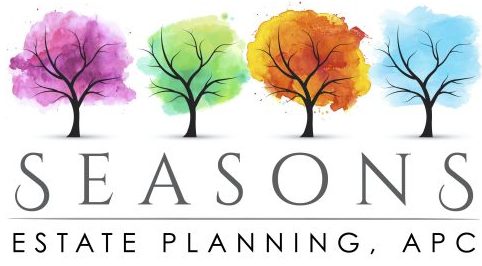- Legacy Planning, Reimagined™
- (310) 344.3015
- [email protected]
The $1.5 Million Estate Planning Mistake You Can’t Afford to Make
Imagine this: You and your partner pour decades into building a thriving business and creating a secure life for your family. You believe your estate planning is solid. Then, tragedy strikes. A minor paperwork mistake leads to a $1.5 million tax bill for your children—an amount they never should have had to pay.
This isn’t just a fictional tale; it’s what happened to the Rowland family in Ohio. In this article, you’ll learn about the costly error that shattered their legacy, why it’s becoming more common for affluent families, and, crucially, how to prevent it from happening to yours.
When “Good Enough” Estate Planning Becomes a Disaster
Billy Rowland was a devoted family man, known for his “World’s Greatest Grandpa” cap and for building a successful life. Over the years, he expanded his small businesses throughout Ohio—trucking, used cars, real estate, and banking—while actively serving on charity boards.
After the death of his wife Fay in 2016, her estate submitted the necessary tax return to retain her unused estate tax exclusion for Billy. It seemed routine, detailing the assets like real estate and business shares.
However, the return failed to specify the value of each individual asset. To most, this might seem like a trivial oversight. They provided the total estate value, after all.
But that seemingly minor detail cost Billy’s heirs $1.5 million when he passed away in 2018.
The IRS determined that due to the incomplete return of Fay’s estate, Billy could not access her $3.7 million unused exclusion. Without that cushion, his $26 million estate faced an enormous tax liability that proper planning could have easily avoided.
The tragic reality is that the mistake wasn’t uncovered until it was too late. The IRS didn’t question Fay’s return until 2021—three years after Billy’s passing and five years after Fay’s death. By then, the chance for correction was long gone.
Why This Issue Is Likely to Get Much Worse
If you believe the Rowland family’s situation is an anomaly, consider this: recent tax law changes are making such errors more likely and costly.
As of 2025, individuals can transfer $13.99 million to heirs tax-free, increasing to $15 million in 2026. For couples who plan accordingly, that could mean shielding $30 million from estate taxes.
However, there’s a crucial point: the first spouse to pass must file a proper estate tax return, even if their estate doesn’t exceed the threshold. Missing any detail on that return means the surviving spouse forfeits access to the deceased partner’s unused exclusion permanently.
The stakes are high. With estate taxes hitting 40% on amounts over the exclusion, a paperwork mishap could cost a family millions. Estate assets often aren’t liquid, necessitating the sale of critical properties or businesses to cover the tax bill, jeopardizing years of wealth accumulation.
Consider that nearly 500,000 Americans now have a net worth of $15 million or more, many unaware they’re sitting on an estate planning crisis.
Even families with smaller estates are at risk. Investments can grow, unexpected inheritances may come, businesses might thrive, or tax exemptions could decrease with changes in administration. What seems manageable today could easily become problematic tomorrow.
The Real Issue: Ineffective Planning
The Rowland family’s situation highlights a critical flaw in estate planning. Many view it as a simple task—drafting documents, storing them away, and thinking it’s all settled.
Effective estate planning isn’t just about having the right paperwork. It requires a dynamic system that adapts to changing circumstances, supported by an attorney who ensures your plan functions when your loved ones need it most.
In typical scenarios, families consult a lawyer, create a will or trust, possibly complete some beneficiary forms, and assume the work is done. Years later, laws evolve, assets increase, and family dynamics shift. Yet, the estate plan remains stagnant, rooted in outdated circumstances.
When a spouse passes away, the surviving partner or an adult child suddenly faces the daunting task of navigating unfamiliar tax laws and filing obligations. They must manage paperwork they’ve never encountered, make decisions about legal matters they don’t grasp, all while coping with grief and family changes.
It’s no surprise that important details often slip through the cracks.
Traditional estate planning often leads families to this kind of oversight. The focus is on creating documents rather than fostering a relationship with a knowledgeable advisor who can guide them through life’s transitions.
This highlights the importance of “planning that works.” Estate planning documents are insufficient; a thorough Life & Legacy Plan that adapts over time and includes continuous guidance is essential to prevent oversights.
A Life & Legacy Plan should include regular reviews to align with your current circumstances, effective communication of your wishes with loved ones, and professional support to handle intricate requirements like estate tax filings and portability elections.
When Fay Rowland died, there should have been someone ensuring her estate tax return was accurately filed. Someone should have verified that all necessary details were included and monitored the process to preempt any potential issues from escalating.
The Rowland family faced a dire situation because they had to navigate complex issues without support, which cost them greatly.
Creating Effective Protection
The good news is that the Rowland family’s ordeal is entirely preventable. It requires a proactive approach to estate planning—one focused on relationships and thorough planning instead of just creating documents. That’s the essence of our Life & Legacy Planning process.
Here’s why Life & Legacy Planning is essential:
Estate planning isn’t a one-time task. Your plan must adapt as your life changes. This demands regular reviews with us to identify potential issues before they escalate.
If you’re married and have significant assets, don’t rely solely on basic documents. You need a comprehensive strategy that accounts for tax implications, aligns with your financial planning, and provides guidance on complex choices like portability elections. We have the necessary systems in place.
It’s crucial that your family understands the plan. Many estate planning failures arise because surviving family members lack clarity on what to do or when deadlines are approaching. We emphasize open communication with your loved ones before and after your passing, ensuring they are well-informed about your intentions and how to proceed.
Lastly, when you partner with us, we act as your trusted advisor, not just a document preparer. We support your family during crucial decisions, ensure timely filing of required returns, and stay updated on changing laws that could impact your plan. You can trust us to safeguard your legacy.
The Rowland family’s experience highlights that small details in estate planning can lead to significant consequences. Don’t let a simple oversight undermine the legacy you’ve worked hard to build.
Protect Your Family’s Future Today
Your family’s financial security is crucial. The Rowland case illustrates how even affluent families can lose substantial assets due to preventable estate planning errors. With the right guidance and a trusted advisor, you can avoid these pitfalls.
We assist families in crafting effective Life & Legacy Plans. Our approach safeguards your assets, clarifies the plan for your loved ones, and ensures all legal requirements are met—eliminating the worry of costly mistakes that could jeopardize your family’s future.
With proper planning, you can be confident that your legacy will be honored and that your hard work will benefit those you care about most.
Don’t let your family become another cautionary tale. Schedule a complimentary 15-minute discovery call to begin protecting your family’s future.
Schedule a complimentary 15-minute consultation to learn more.
This article is a service of Kristen Wong of Seasons Estate Planning, APC, a Personal Family Lawyer® Firm. We don’t just draft documents; we ensure you make informed and empowered decisions about life and death, for yourself and the people you love. That’s why we offer a Life & Legacy Planning Session™, during which you will get more financially organized than you’ve ever been before and make all the best choices for the people you love. You can begin by calling our office today to schedule a Life & Legacy Planning Session™.
The content is sourced from Personal Family Lawyer® for use by Personal Family Lawyer® firms, a source believed to be providing accurate information. This material was created for educational and informational purposes only and is not intended as ERISA, tax, legal, or investment advice. If you are seeking legal advice specific to your needs, such advice services must be obtained on your own separate from this educational material.

